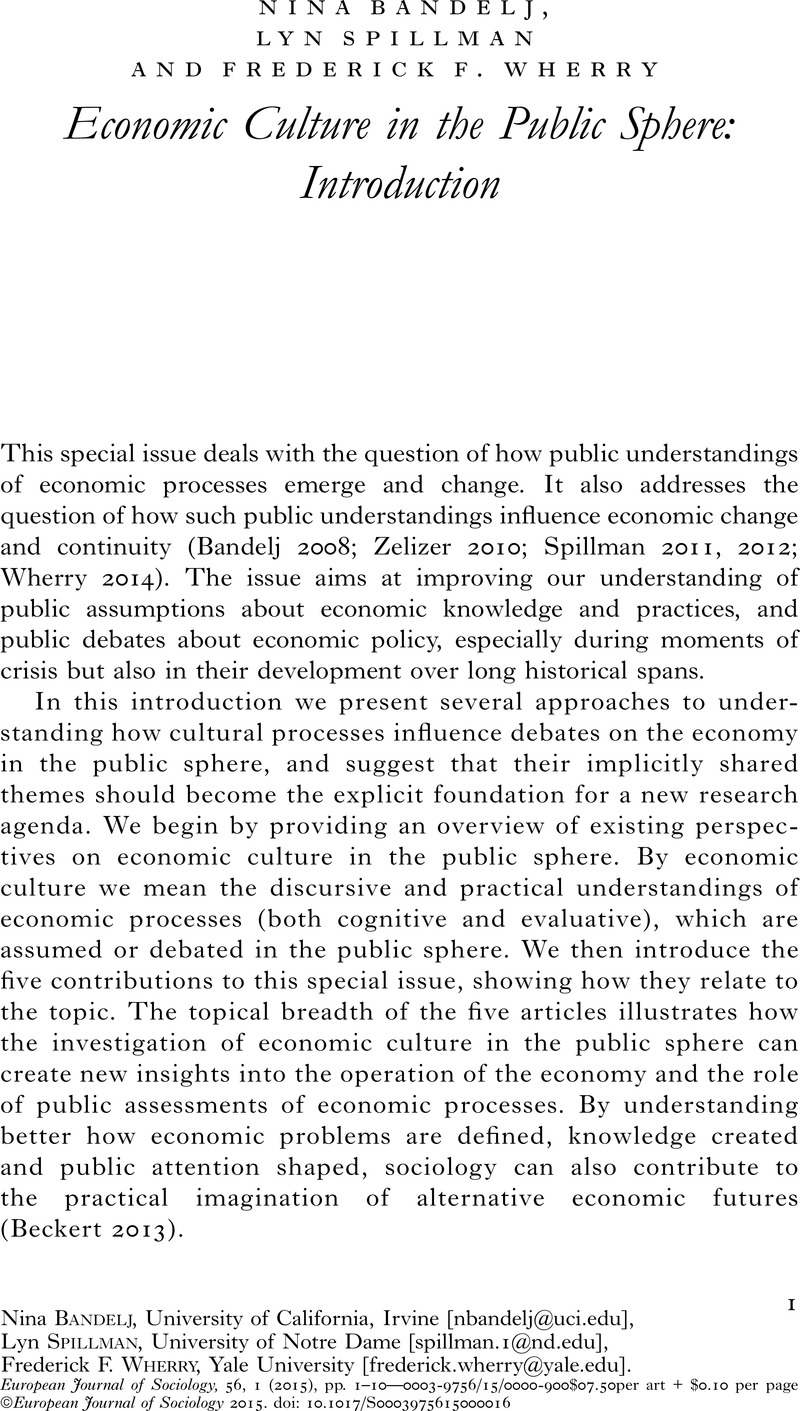Crossref Citations
This article has been cited by the following publications. This list is generated based on data provided by Crossref.
Clair, Matthew
2016.
Communication and Information Technologies Annual.
Vol. 11,
Issue. ,
p.
169.
Lizardo, Omar
2016.
Handbook of Contemporary Sociological Theory.
p.
99.
da Silva, Sandro José
2017.
Quilombolasand citizens: national projects and the right to land in Brazil.
African and Black Diaspora: An International Journal,
Vol. 10,
Issue. 2,
p.
143.
Chen, Yunsong
and
Yan, Fei
2018.
International visibility as determinants of foreign direct investment: An empirical study of Chinese Provinces.
Social Science Research,
Vol. 76,
Issue. ,
p.
23.
Chen, Yunsong
and
Yan, Fei
2018.
International Visibility As Determinants of Foreign Direct Investment: An Empirical Study of Chinese Provinces.
SSRN Electronic Journal ,
Fondevila, Gustavo
and
Quintana-Navarrete, Miguel
2019.
Economic informality as a national project.
Review of Social Economy,
Vol. 77,
Issue. 4,
p.
523.
Kupzok, Nils
2020.
Fragile legitimacy: the rise and crisis of the EU’s ‘sustainable biofuels’ policy.
Socio-Economic Review,
Vol. 18,
Issue. 1,
p.
235.
Wherry, Frederick F.
2020.
SSHA Presidential Address: The Pathways to Disadvantage.
Social Science History,
Vol. 44,
Issue. 1,
p.
1.
Kaldor, Yair
2021.
The cultural foundations of economic categories: finance and class in the marginalist revolution.
Socio-Economic Review,
Vol. 18,
Issue. 4,
p.
1133.
Brykin, A. V.
Kunizheva, D. A.
and
Bolshunova, S. A.
2022.
Methodological Approaches to the Study of Financial and Economic Culture.
Humanities and Social Sciences. Bulletin of the Financial University,
Vol. 11,
Issue. 6,
p.
73.
Marambio-Tapia, Alejandro
2023.
The evolving moral economy of indebtedness in Chile: resignifying credit and debt in the oldest neoliberal society.
Journal of Consumer Culture,
Vol. 23,
Issue. 2,
p.
409.



